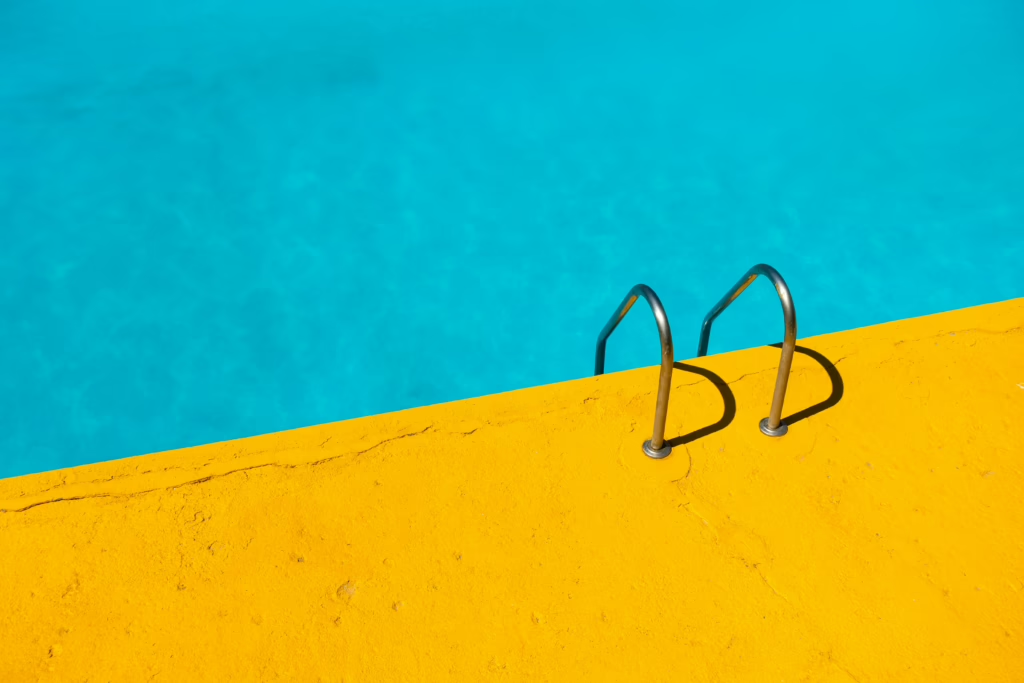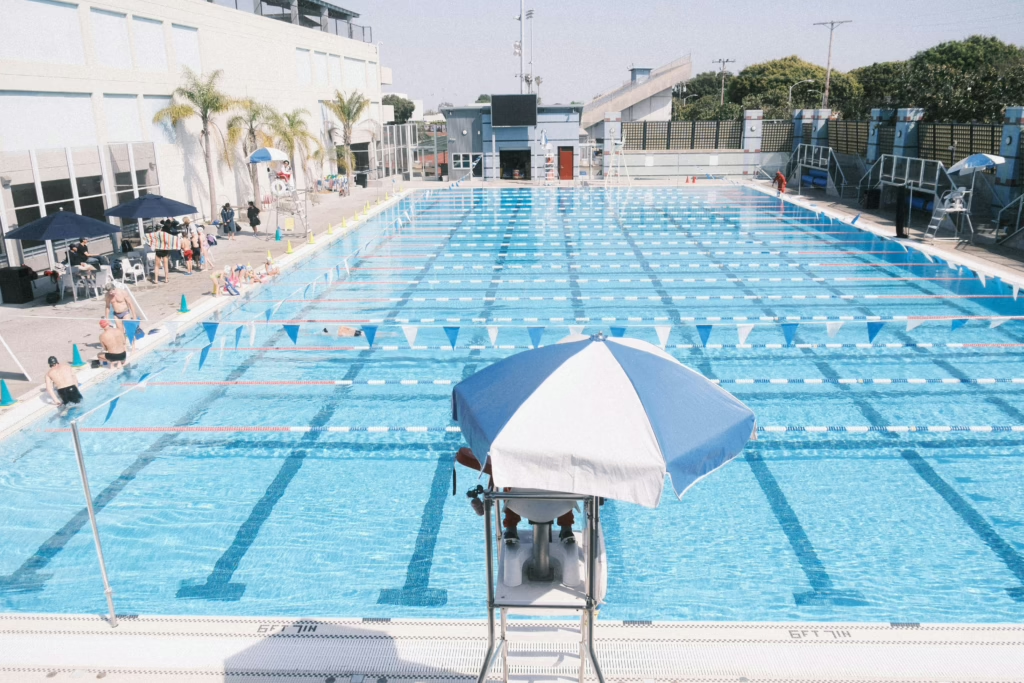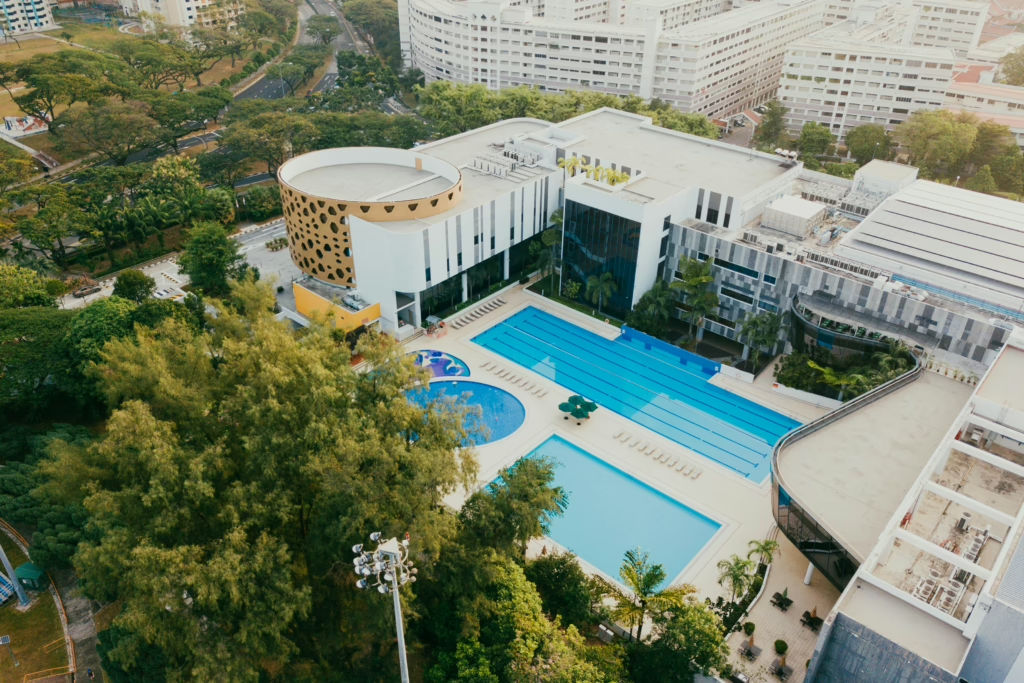A well-functioning pool pump is essential for maintaining clean, safe, and inviting pool water. It circulates water through the filtration system, removing debris and ensuring proper chemical distribution. However, pool pumps can develop problems over time, just like any mechanical device. Recognizing the early signs of trouble can save you from costly repairs or even the need for a complete replacement.
If you’ve been searching for pool pump repair near me, this guide will help you identify common issues and explain when it’s time to call in the professionals at PoolLogic San Diego.
Why a Healthy Pool Pump Matters
Before diving into the signs of pump trouble, it’s essential to understand the critical role your pool pump plays:
- Water Circulation: The pump ensures water moves continuously through the filter, keeping it clean and clear.
- Chemical Distribution: Proper circulation helps evenly distribute chemicals, maintaining balanced water chemistry.
- Preventing Stagnation: A functioning pump prevents stagnant water, which can become a breeding ground for algae and bacteria.
Ignoring pump issues can lead to poor water quality, health risks, and expensive damage to your pool system.
Top Signs Your Pool Pump Needs Repair
1. Unusual Noises
If your pool pump starts making strange sounds, it’s a clear indicator that something isn’t right.
- Grinding or Screeching: This could signal worn-out bearings or debris caught in the impeller.
- Humming Without Starting: The motor may receive power but fail to start, possibly due to a seized shaft or electrical issue.
- Loud Vibrations: Unbalanced components or loose parts can cause excessive vibration, leading to further damage if not addressed.
What to Do: Turn off the pump immediately to prevent additional damage and consult a professional for diagnosis.
2. Decreased Water Flow
A noticeable reduction in water flow can affect the effectiveness of your pool’s filtration system.
- Weak Return Jets: The pump may be struggling if the water isn’t flowing back into the pool with enough force.
- Dirty Pool Despite Regular Maintenance: Reduced circulation can lead to accumulation of debris and cloudy water.
Possible Causes:
- Clogged filters or baskets
- Impeller blockage
- Air leaks in the suction line
What to Do: Check and clean the filters and skimmer baskets. If the problem persists, call a professional.
3. Leaks Around the Pump
Water pooling around your pump is a sign of trouble.
- Wet Spots or Puddles: Leaks can occur at the pump seal, housing, or connections.
- Corrosion: Continuous leaks can lead to rust and deterioration of metal components.
Possible Causes:
- Worn-out seals or gaskets
- Cracks in the pump housing
- Loose pipe fittings
What to Do: Leaks should be addressed promptly to prevent further damage. A professional can identify the source and perform necessary repairs.
4. Frequent Shutdowns or Failure to Start
There may be underlying issues if your pump turns off unexpectedly or won’t start.
- Overheating: The motor may shut down to prevent damage if it overheats.
- Electrical Problems: Faulty wiring or a tripped circuit breaker can interrupt the power supply.
- Capacitor Failure: The start capacitor helps the motor begin running; if it fails, the pump won’t start.
What to Do: Avoid attempting electrical repairs yourself. Contact a qualified technician to diagnose and fix the problem safely.
5. Overheating Pump
An overheating pump can lead to permanent motor damage.
- Hot to the Touch: If the pump feels excessively hot, it’s a warning sign.
- Burnt Odor: A smell of burning plastic or metal indicates serious overheating.
Possible Causes:
- Inadequate ventilation
- Clogged vents or dirty motor
- Mechanical friction due to worn parts
What to Do: Turn off the pump and let it cool down. Ensure the area around the pump is clear. If overheating continues, seek professional help.
6. Air in the Pump Basket
Air bubbles or pockets in the pump basket can disrupt the pump’s circulation ability.
- Bubbles in the Pool: Air returning to the pool indicates suction side leaks.
- No Prime: The pump loses its prime and can’t draw water effectively.
Possible Causes:
- Leaks in the suction line or fittings
- Low water levels in the pool
- Damaged pump lid O-ring
What to Do: Check the water level and ensure the pump lid is sealed correctly. If air continues to enter the system, a professional inspection is necessary.
7. High Energy Bills
A sudden increase in energy costs may be linked to an inefficient pool pump.
- Longer Run Times: A struggling pump may run longer to achieve the same results.
- Strained Motor: Malfunctions cause the motor to work harder, consuming more electricity.
What to Do: Monitor your energy bills. If you notice unexplained increases, have your pump evaluated for efficiency.
8. Visible Rust or Corrosion
Corrosion can weaken the pump structure and affect performance.
- Rust on Metal Parts: Indicates exposure to moisture and potential leaks.
- Corroded Electrical Connections: Can lead to electrical failures and safety hazards.
What to Do: Regularly inspect your pump for signs of corrosion. Addressing minor rust early can prevent more severe damage.
9. Age of the Pump
Pool pumps typically last eight to 12 years with proper maintenance.
- Frequent Repairs: An older pump requiring constant fixes may be nearing the end of its lifespan.
- Outdated Model: Older pumps may be less efficient and lack modern safety features.
What to Do: When evaluating issues, consider the age of your pump. Replacing it with a newer, energy-efficient model might be more cost-effective.
Why Prompt Repair Is Essential
Ignoring the signs of a failing pool pump can lead to:
- Water Quality Issues: Poor circulation affects filtration and chemical distribution, leading to unhealthy water.
- Increased Costs: Small problems can escalate into major repairs or complete pump failure.
- System Damage: A malfunctioning pump can strain other components, like the filter and heater, causing additional damage.
When to Call PoolLogic San Diego
While diligent pool owners can handle some minor issues, many pump problems require professional expertise.
Contact us if:
- You’re experiencing any of the signs mentioned above.
- You’re unsure about the cause of a problem.
- You need advice on whether to repair or replace your pump.
At PoolLogic San Diego, our skilled technicians diagnose and repair pool pumps efficiently and safely.
Preventive Measures to Extend Pump Life
- Regular Maintenance: Schedule routine check-ups to keep your pump running smoothly.
- Keep the Area Clean: Ensure the pump has proper ventilation and is debris-free.
- Monitor Performance: Pay attention to noise, flow rate, and energy consumption changes.
- Water Chemistry: Maintain balanced water chemistry to prevent corrosion and scaling.
FAQs: Pool Pump Repair Near Me
1. What are the signs my pool pump needs repair?
If your pool pump is acting up, watch for unusual sounds like grinding or screeching, reduced water flow, visible leaks, frequent shutdowns, or sudden increases in energy bills. Addressing these signs early can save you from more costly repairs later.
2. How much does a pool pump repair cost near me?
The cost of repairing a pool pump can vary depending on the issue. Simple fixes, such as replacing seals, might cost $100 to $200, while more complex repairs, like motor replacement, could reach $500 or more. For an accurate estimate, it’s best to consult a local professional.
3. Can I repair my pool pump myself?
While basic maintenance tasks like cleaning filters or checking for loose fittings are manageable, professionals best handle more complex issues involving the motor, wiring, or seals. Improper repairs can worsen the problem or create safety hazards.
4. Why is my pool pump making a loud noise?
A noisy pump often indicates an internal issue. Grinding sounds could mean the bearings are worn out, while loud vibrations may signal loose components. If you hear humming without the pump starting, the motor may be jammed or faulty.
5. What causes a pool pump to stop working?
Several factors can lead to a pump failure, including electrical issues, clogs in the impeller or filters, motor burnout, or air leaks in the system. Regular maintenance can help prevent these problems.
6. Should I repair or replace my pool pump?
Repairs are usually a better option if your pump is less than 8–10 years old and the repair cost is less than half the price of a new pump. However, replacement may be more cost-effective if the pump is old, inefficient, or experiencing recurring issues.
7. How long should a pool pump last?
With proper care, a pool pump typically lasts 8 to 12 years. Regular maintenance, such as cleaning filters and ensuring adequate ventilation, can help maximize its lifespan.
8. Why is my pool pump leaking?
Leaks can result from worn seals, cracks in the pump housing, or loose connections. Addressing leaks quickly is crucial to prevent further damage and maintain system efficiency.
9. What can I do to prevent future pool pump repairs?
Preventive care is critical. Regularly clean filters and skimmer baskets, maintain proper water levels, inspect seals and gaskets for wear, and schedule annual professional inspections to catch potential issues early.
10. How quickly can pool pump repair be completed in San Diego?
The timeline for repairs depends on the issue. Minor fixes like seal replacement may take just a few hours, while more complex repairs, such as motor replacement, could take a day or more. Contact PoolLogic San Diego for a prompt evaluation and efficient repair services.
Final Thoughts
Your pool pump is vital to the health and enjoyment of your pool. By staying alert to the signs of potential problems, you can address issues before they escalate, ensuring clear, safe water all season long.
Don’t let a failing pump ruin your pool experience. If you notice any trouble, contact PoolLogic San Diego—the trusted experts in “pool pump repair near me.” Call us today to schedule a service appointment and keep your pool running at its best!



